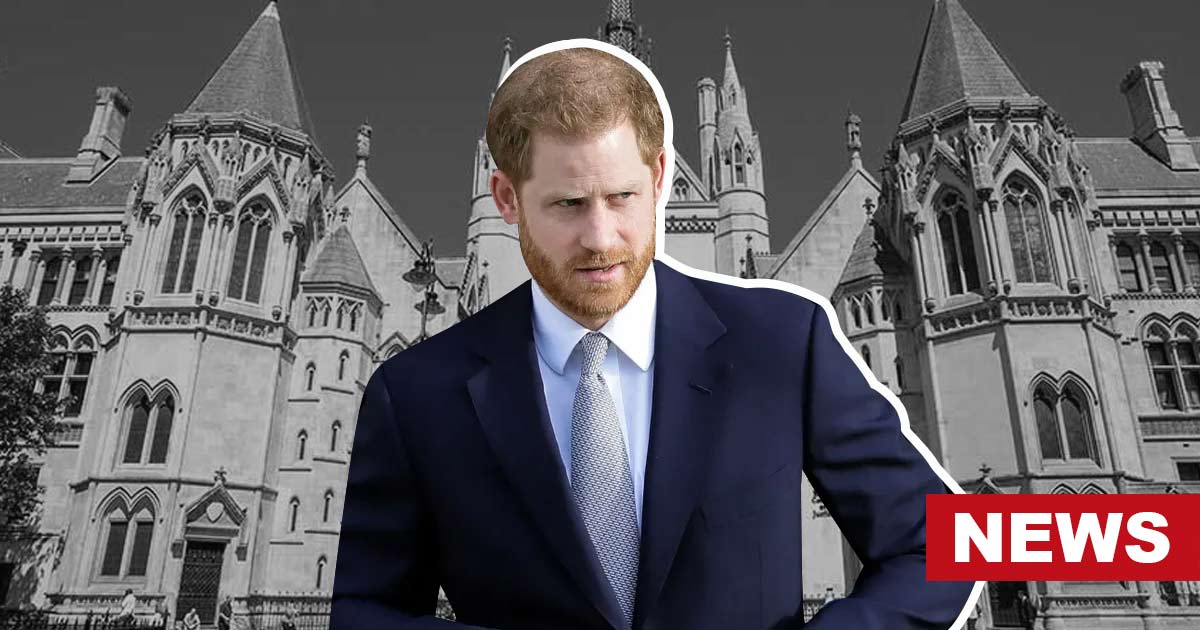Prince Harry, Duke of Sussex, has been known lately for doing all things “extremely unroyal”. From starring in a very Kardashian-like Netflix “documentary” to spilling the “royal tea” about the most intimate issues in his infamous biography Spare, he has done it all. On Tuesday, he became the first senior British royal to give evidence in court for more than a century.
The last time it was Edward VII, as Prince of Wales, in the 19th Century. Testifying in a court in full swing has been a taboo for modern royals, especially if the evidence constitutes sensitive matters like mental health. Rehearsed or scripted interviews and campaigns for charities are one thing, but a famous royal like Prince Harry in court with a candid testimony? A big no?
Prince Harry in court elaborated on the “very difficult relationship with the tabloid press in the UK”, citing the devastating consequences media interference had on his mental health and developmental experiences. He directed specific accusations toward MGN, the publisher of the Daily Mirror, Sunday Mirror, and The People.
He alleged that the hostile media giants in the UK published approximately 140 articles between the years 1996 and 2010 containing information that was obtained unlawfully through phone hacking, voicemail interception, and constant paparazzi scrutiny.
In his exhaustive 55-page statement, Prince Harry touched upon his childhood experiences, his mother’s tragic accident, and how the obsessive media pursuit made his teenage and early adult years extremely difficult.
He explained how the media-perpetrated image of him stuck and dictated his behavior: “Tabloids would routinely publish articles about me that were often wrong but interspersed with snippets of truth. This created an alternative and distorted version of me to the general public … You’re then either the ‘playboy prince’, the ‘failure’, the ‘dropout’ or, in my case, the ‘thicko’, the ‘cheat’, the ‘underage drinker’, the ‘irresponsible drug taker’, the list goes on.
As a teenager and in my early 20s, I ended up feeling as though I was playing up to a lot of the headlines and stereotypes mainly because … It was a downward spiral, whereby the tabloids would constantly try and coax me into doing something stupid that would make a good story and sell lots of newspapers.”
Prince Harry also explained how these accusations, compounded with the grief of losing a parent at such a vulnerable age, left him devastated. He developed acute paranoia and distrust for everyone around him, including his then-girlfriends, friends, and palace advisors.
He said, “I felt that I couldn’t trust anybody, which was an awful feeling for me especially at such a young age.” Accusing the press, he said: “Whenever I got into a relationship, they were very keen to report the details but would then, very quickly, seek to try and break it up by putting as much strain on it and creating as much distrust as humanly possible.” He also fumed at the false media narrative of his parenthood and how the speculations about his birth impacted his identity and self-esteem.
Following Prince Harry’s and his wife Meghan Markle’s stepping down as senior royals in 2020, the controversial couple has been the subject of several lawsuits directed against the British media. ‘
Most of their concerns centered around violated media privacy, unchecked media interference, and misinformation. The current lawsuit is thought to be a part of Prince Harry’s “life work” and battle to change the media treatment of private individuals. It also seeks to address the misinformation epidemic.
A Note On Prince Harry’s Law Suit
Prince Harry’s gripping lawsuit is unsympathetically viewed by many as a PR stunt. However, despite the glaring irony that a royal who divulged his secrets generously to publishing and steaming giants for sumptuous money should find tabloid news problematic, he does raise valid concerns.
His suit exposes the abuse of press freedom, the impact of the media on mental health, and the mental challenges faced by public figures in the open eye (despite their fame and resources). He also sheds light on the lived experiences of someone living with acute paranoia and social anxiety, and how such mental health conditions ruin reputations, intimate partner bonds, and other social relationships.

























